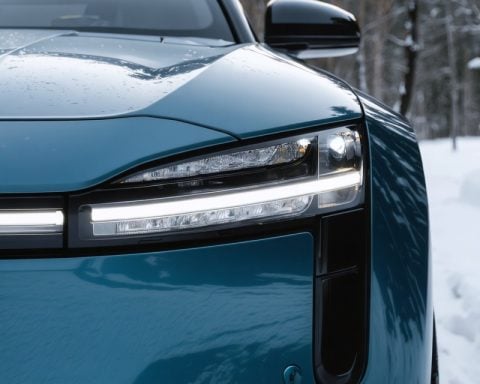NYC’s Proposal for E-Bike Licensing Sparks Concerns
In recent days, a proposal in New York City has emerged that aims to mandate the licensing and registration of e-bikes. For clarity, this specifically refers to electric bicycles—not electric motorcycles.
The discussion around this legislation has raised questions about its implications for delivery riders who navigate the bustling streets daily. Transportation Commissioner Ydanis Rodriguez highlighted a significant point: while the intent behind the bill is to enhance safety, it appears that enforcement would disproportionately affect those delivering food.
Current statistics from Rodriguez reveal a stark contrast in safety incidents: 105 pedestrians have tragically lost their lives to vehicle collisions this year compared to just six fatalities involving e-bikes and similar devices.
E-bikes, still a relatively new mode of urban transportation, have stirred a debate on public safety and regulation. However, requiring licensing may not be the most effective approach, especially when traditional bicycles remain unregulated. E-bikes have opened doors for many, including those who couldn’t rely solely on their physical fitness.
Moreover, the stressful reality of delivery work raises further complications. Riders face immense pressure from restaurants, customers, and unpredictable street conditions. With upcoming changes to wages—like the stipulation that third-party delivery apps must pay at least $19.56 per hour—many wonder if this new regulation would truly serve to benefit or hinder these essential workers.
Should New York City Mandate E-Bike Licensing? Exploring Pros and Cons
NYC’s Proposal for E-Bike Licensing Sparks Concerns
In recent discussions, New York City’s proposal to mandate licensing and registration for e-bikes has ignited a wave of mixed reactions from various stakeholders. The legislation, aimed primarily at enhancing safety for all road users, notably impacts delivery riders who rely on these electric bicycles as a major part of their livelihood.
Pros and Cons of E-Bike Licensing
Pros:
1. Enhanced Safety Regulations: Advocates claim that licensing could lead to better safety measures. By ensuring e-bike users are trained, it may help reduce accidents.
2. Data Collection: A registration system could allow for better data tracking of e-bike usage and incidents, providing insights that could improve urban planning and safety measures.
3. Legitimizing E-Bikes: Licensing may help frame e-bikes within a legal context that recognizes their role in modern transport, potentially leading to increased infrastructure investment.
Cons:
1. Disproportionate Impact on Delivery Riders: Many delivery riders, who often operate under stressful conditions, may be disproportionately affected by new regulations. Most of them cannot easily absorb additional costs linked to licensing.
2. Existing Data on Safety: Current statistics indicate that e-bike-related deaths are minimal compared to traditional vehicle-related fatalities, raising questions about the necessity of such regulations.
3. Economic Challenges: With new wage requirements, such as the mandate that third-party delivery apps pay at least $19.56 per hour, additional licensing fees could strain the income of these essential workers.
Current Trends in E-Bike Use
E-bikes have surged in popularity in urban environments, offering an environmentally friendly and efficient alternative to traditional commuting methods. The trend towards sustainability has pushed many cities, including NYC, to consider better regulation of this emerging mode of transportation. Interestingly, a report from the E-Bike Coalition indicates a remarkable 70% increase in e-bike sales since the pandemic began, underscoring their role as a preferred mode of transport.
Use Cases for E-Bikes
1. Delivery Services: E-bikes have revolutionized the delivery sector, allowing riders to navigate dense city traffic more effectively than cars or traditional bicycles.
2. Commute Alternatives: For individuals who may struggle with fitness, e-bikes offer a manageable way to commute, reducing reliance on cars and public transport.
3. Tourism: Many local tour companies are adopting e-bikes to offer a unique and enjoyable guided experience through the city, capitalizing on their efficiency.
Future Considerations
As NYC evaluates this proposal, the discussion around e-bike licensing will likely reflect broader societal trends on mobility, safety, and sustainability. A balanced approach that considers the needs of both riders and pedestrians may lead to innovative solutions that support the growth of e-bike use while ensuring public safety.
Insights and Predictions
Experts predict that if regulated thoughtfully, e-bikes could significantly reduce urban congestion and improve air quality compared to traditional vehicles. However, successful implementation hinges on crafting regulations that are fair and supportive of those who rely on these bicycles for their livelihoods.
Conclusion
While New York City’s e-bike licensing proposal aims to promote safety, its potential implications for delivery workers and local riders cannot be overlooked. As the debates continue, striking a balance between safety and practicality will be vital for the city’s diverse community of e-bike users.
For more information on transportation trends in urban areas, visit NYC.gov.


















